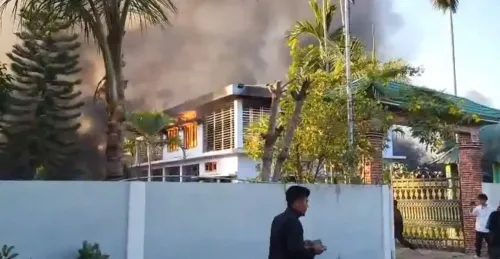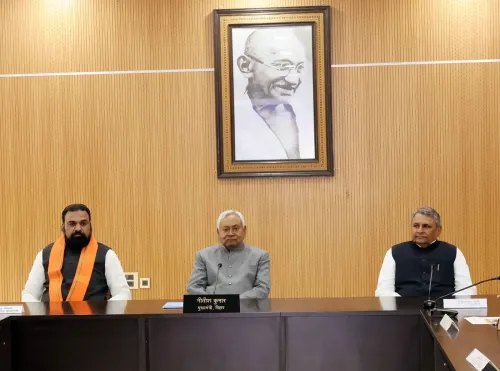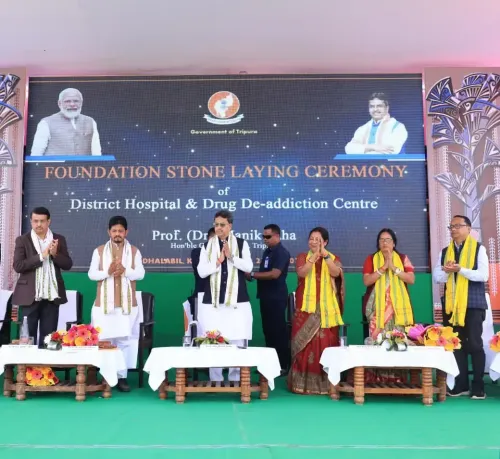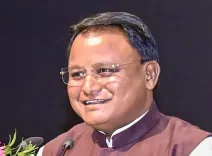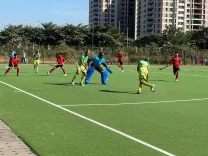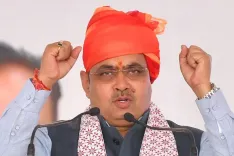What Did the Supreme Court Rule on the Presidential Reference for Gubernatorial Timelines?
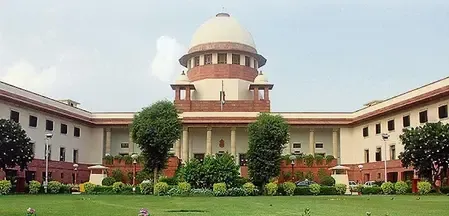
Synopsis
Key Takeaways
- The Supreme Court is examining the possibility of imposing timelines on Governors.
- Presidential reference raises questions about legislative and gubernatorial authority.
- The case will have implications for governance at both state and national levels.
- The Supreme Court seeks to ensure timely action on Bills.
- All state governments are involved in the proceedings.
New Delhi, July 22 (NationPress) The Supreme Court has issued notices to the Centre and all state governments following a reference from the President under Article 143 of the Constitution. This inquiry seeks the court's opinion on whether it is feasible to impose timelines on Governors for acting on Bills in the absence of a constitutionally-mandated time frame.
The 5-judge Bench, led by Chief Justice of India (CJI) B.R. Gavai, has called upon Attorney General of India R. Venkataramani, the nation's top legal officer, for assistance in the case titled “In Re: Assent, Withholding or Reservation of Bills by the Governor and the President of India”.
This special Bench, which also includes Justices Surya Kant, Vikram Nath, P.S. Narasimha, and Atul S. Chandurka, announced that it will continue to hear the Presidential reference in August.
The matter is scheduled for the next Tuesday, allowing state governments to present their arguments.
Solicitor General (SG) Tushar Mehta has waived notice on behalf of the Union government, confirming his appearance for the Centre.
During the proceedings, Senior advocate K.K. Venugopal, representing Kerala, raised concerns regarding the case's maintainability.
Similarly, senior advocate P. Wilson, representing Tamil Nadu, contended that the issues raised in the Presidential reference had already been resolved by the apex court in the Tamil Nadu Bills case and questioned its maintainability.
When Wilson claimed that the Presidential reference impacted Tamil Nadu's interests, the CJI Gavai-led Bench responded, indicating that the matter concerns all states and that their voices must be heard.
“Issue notice to the Union and all state governments. All state governments should be served via email. Notice should also be given to all standing counsels,” the Bench commanded.
Following the apex court's ruling in the Tamil Nadu Bills case, President Droupadi Murmu requested the court in May to provide its opinion on constitutional options available to a Governor when a Bill is submitted to them under Article 200 of the Constitution.
Previously, in April 2025, a two-judge Bench of the Supreme Court, exercising its inherent powers under Article 142 of the Constitution, resolved a conflict between the Tamil Nadu government and Governor R.N. Ravi regarding the delay in granting assent to Bills passed by the Assembly.
The court deemed Governor Ravi's refusal to approve 10 Bills in Tamil Nadu as both “illegal and arbitrary” and established a three-month deadline for Presidential and gubernatorial approval of Bills passed by the legislature for a second time.
“The President must decide on the Bills reserved for his consideration by the Governor within three months from the date of receipt of such reference,” stated a Bench of Justices J.B. Pardiwala and R. Mahadevan.
If there is no decision within this time, states are entitled to file writ petitions seeking a writ of mandamus against the President, the Justice Pardiwala-led Bench clarified.
The apex court utilized its extraordinary powers to declare the 10 withheld Bills as deemed assented on the date they were presented to the Governor after being reconsidered by the state legislature.
The court determined that once a Bill is returned, re-passed by the legislature, and presented again to the Governor, it is not within the Governor's authority to reserve it for the President’s consideration.
This judgment effectively brought Presidential actions under judicial scrutiny by establishing a three-month deadline for granting assent to Bills, prompting the President to make a reference under Article 143 of the Constitution.
Article 143 allows the President to seek the advisory jurisdiction of the Supreme Court on matters of public significance or constitutional interpretation.
In the Presidential reference, President Murmu inquired, “Is the Governor bound by the advice offered by the Council of Ministers while exercising the options available when a Bill is presented under Article 200 of the Constitution of India?”
Furthermore, the reference questioned the justiciability of the Governor's constitutional discretion on Bills when Article 361 imposes an absolute prohibition on judicial review concerning gubernatorial actions. “In the absence of a constitutionally defined timeline and prescribed manner of exercise for the President, can timelines be imposed, and can the manner of exercise be dictated through judicial orders for the exercise of discretion by the President under Article 201 of the Constitution of India?” the President urged the Supreme Court to consider and report its opinion.


